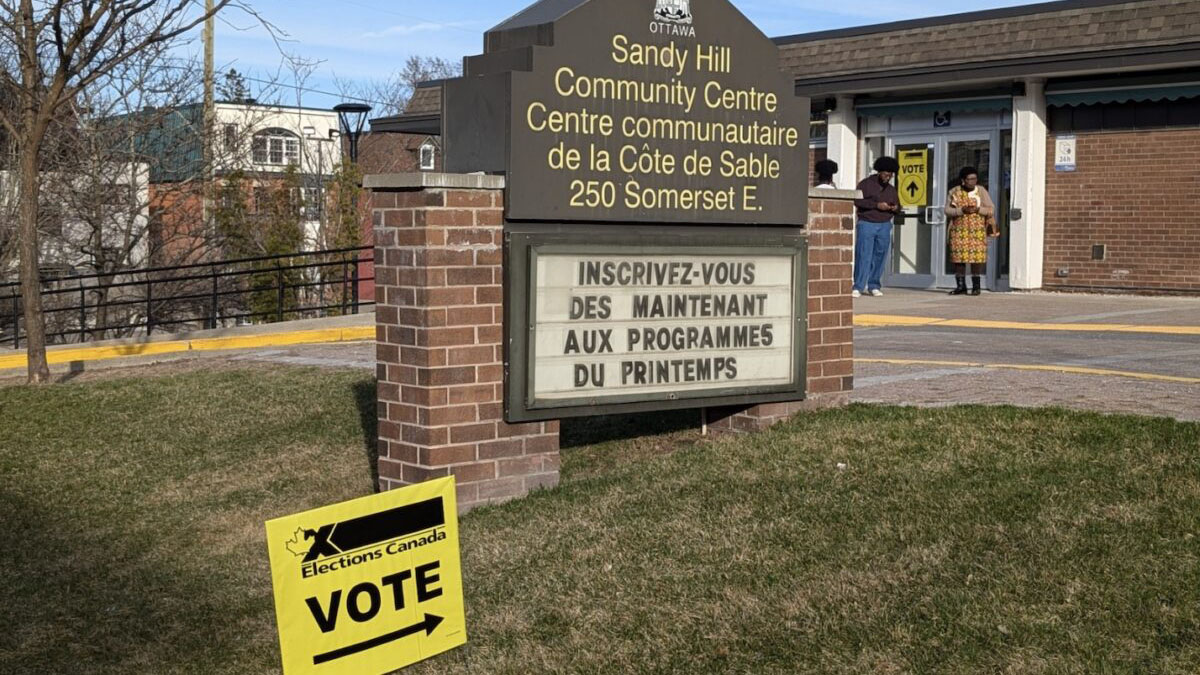Morgan Napper said she isn’t sure who she’s voting for yet in the April 28 federal election, but says her social media feed has “the potential to sway her.”
“There’s this one [influencer] I follow on Instagram, she talks a lot about Canadian politics and the climate and all that stuff,” said Napper, a 23-year-old health science student at Carleton University. “When she posts about the election, I pay attention because I feel like she cares about the same things that I do.”
Napper’s experience appears to be common. A new report from researchers at the University of Ottawa has found that social media influencers are becoming a central source of political information for young voters.
The report identifies influencers not only as advertisers or celebrity endorsers, but as an emerging group of political actors who defy traditional categories. Today’s political influencers may act as journalists, media outlets, or campaign volunteers — all while posting selfies and memes.
The researchers note that influencers offer political parties a distinct advantage because of the parasocial bonds — one-sided relationships — they form with followers which can enhance perceptions of authenticity and trust.
According to the uOttawa report, some campaigns are hiring influencers as unofficial spokespersons to engage niche communities, often without disclosing financial ties.
Elections Canada requires disclosures for paid political advertising, including on social media. However, many influencer posts fall into grey areas when creators are not directly compensated or when content is framed as personal opinion.
Elizabeth Dubois, one of the authors of the University of Ottawa report, warns this is creating some problems.
“We know social media influencers are being integrated into campaign strategies in many ways and we know their content can resonate strongly with potential voters, what we often don’t know is if and how they are paid, whether they are working with a partisan group, or what their ethical standards are,” Dubois said in a press release.
We know social media influencers are being integrated into campaign strategies in many ways and we know their content can resonate strongly with potential voters, what we often don’t know is if and how they are paid, whether they are working with a partisan group, or what their ethical standards are.
Elizabeth Dubois, co-author of uOttawa report, Influencers and Elections
Ava Campanelli, 22, a recent Carleton graduate, says that, while she doesn’t read the news, the information she does get comes from stories her friends share on social media apps such as Instagram. But she notices that a lot of the political information she sees online is “so obviously biased.”
“Maybe it’s because I’m not really that political, but I try to take everything with a grain of salt,” said Campanelli. “Sometimes I see stuff being shared and it just sounds so ridiculous. It’s gotten to the point where I don’t trust anything I see online.”
“I don’t know how much of the news I even trust anymore,” she said. “I actually didn’t even vote in the last election, but everyone I know reposts on their stories about how important voting is, so I kind of felt this, like, pressure I guess, to do my research now and get out there.”
In some countries, influencers have become a key part of election campaigns. During the 2024 U.S. presidential election, social media became a prominent battleground between Kamala Harris and Donald Trump.
Democratic organizations in the U.S invested heavily in the creator economy, offering influencers funding and behind-the-scenes access to counterbalance conservative influence. Harris, known for her meme appeal and online presence, became a key figure in these outreach efforts as the campaign engaged thousands of influencers to reach younger voters on their preferred platforms.
The University of Ottawa report warns of potential abuses from influencer content such as data harvesting and manipulation. Without the guardrails of traditional media, the risk of mis- and disinformation increases.
Scott Bennett, a political science professor at Carleton University, says that while influencer’s have “flash appeal,” he thinks some young people have become more selective of their use of social media for political interactions.
“That is not to say that they are not involved in social media,” said Bennett. “But they are more selectively non-partisan compared to some older people.”
Bennett thinks the impact of an influencer may depend more on the content consumer.
“For the intellectually capable who are also not emotionally unbalanced, they will seek influencers or content that taps into more formal sources of information and provides a popularized but good perspective on classic ideas about politics and policy,” said Bennett.
“For those who are less emotionally balanced or less generally intellectually capable, they will seek out influencers who cater to their emotional profile and are, by and large, working at the level of slogans.”
To help young voters better navigate the media landscape, Bennett says it’s important to understand how narratives may relate to self-interest, as well as the behavioural and psychological effects of biased and repetitive information.
The University of Ottawa researchers also call for better media literacy, monitoring and ethical coverage for influencers during elections.




